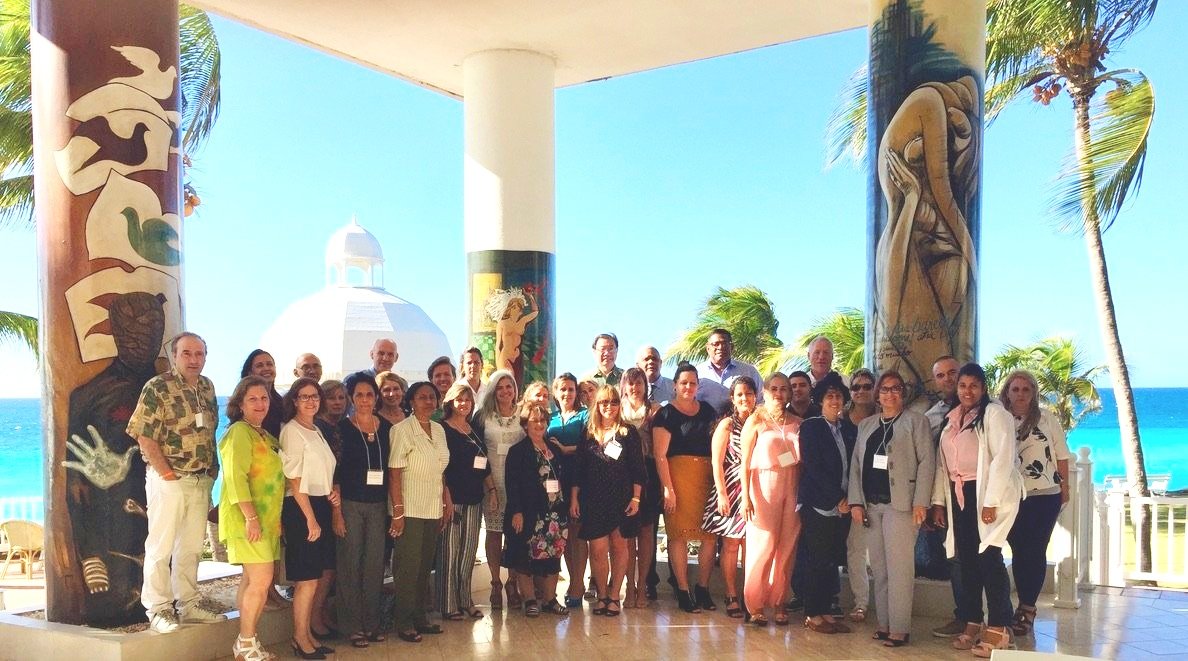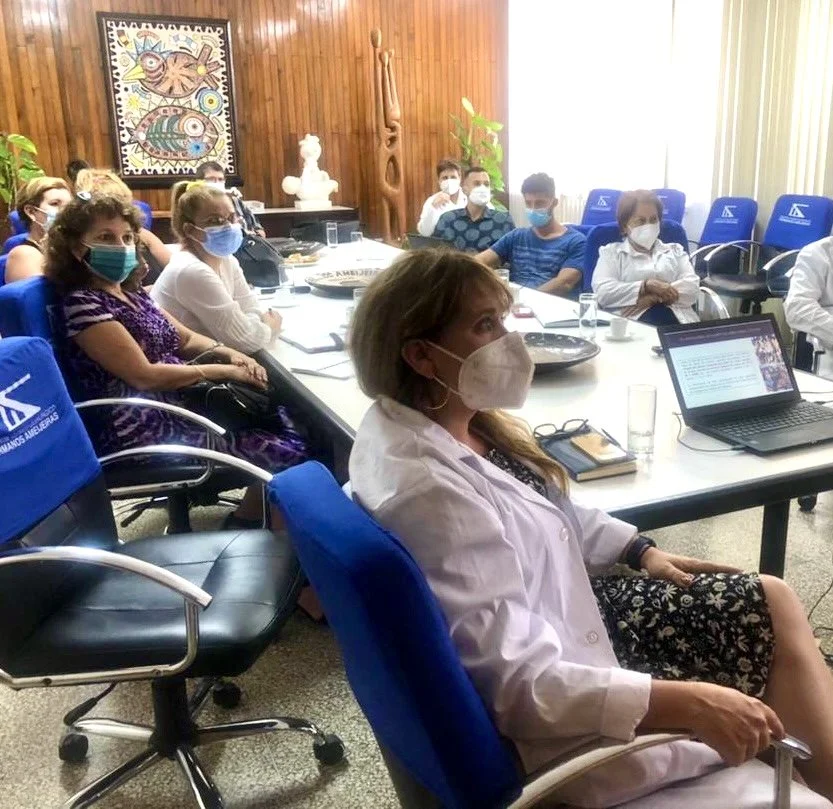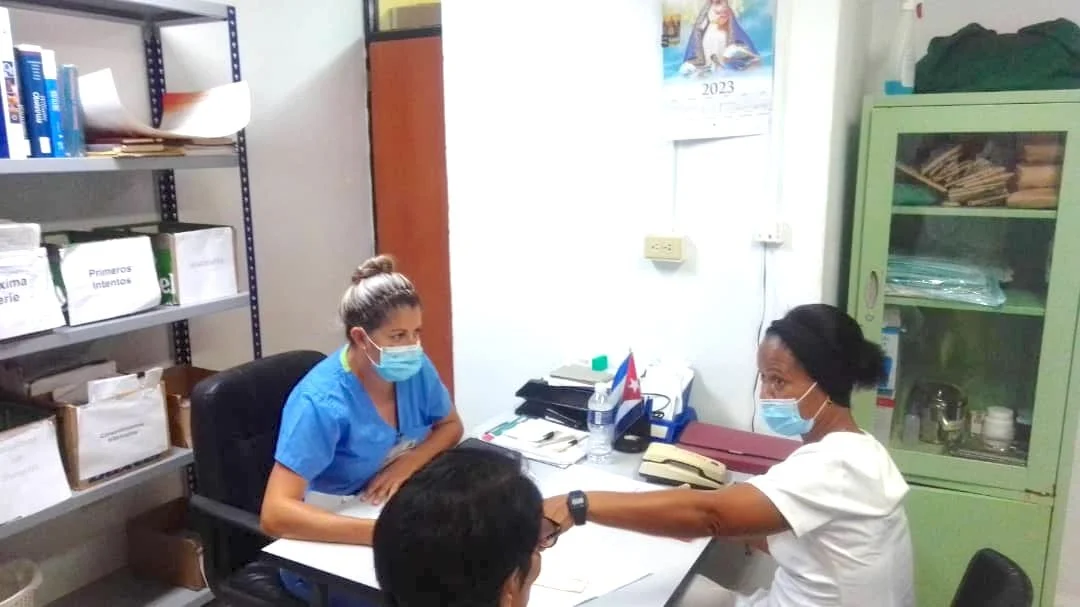
CUBA COLLABORATIONS
WE HAVE DEVELOPED COLLABORATIVE RESEARCH PROJECTS WITH OUR CUBAN COLLEAGUES. UNDER THE LEADERSHIP OF OUR DIRECTOR, DR. STEPHEN LYE AND OUR LIAISON WITH CUBA, DR. YENEIR VERA.
CUBAN COLLABORATION GOALS
Identify common areas of research interest and opportunity
Facilitate ongoing and future research and institutional collaboration
Develop transdisciplinary training opportunities
Engage government and promote international collaboration
Identify potential international funding opportunities
Cuba is a leading country in early childhood development and education programs for children from conception and birth through age 6. The pragmatism of the Cuban approach to health and education, with its emphasis on making the best use of limited resources to achieve a clearly identified goal, is admirable. We believe that Cuba can be a model of early human development for low and middle income countries.
Our mission is to generate knowledge and increase awareness about the fundamental importance of “the early years” in an effort to ensure children reach their full potential. Our goal is to utilize this research to influence policy and practice world-wide.
CUBAN NATIONAL CHILD COHORT STUDY (CNCCS 1973-2025)
Cuba stands out as one of the few countries equipped with a rich database that enables an in-depth exploration of the origins and progression of chronic diseases. This resource emerges from a national cohort study conducted on all children born within the first week of March 1973 (N = 4299). These individuals were meticulously tracked and studied at various stages of their lives – birth, at 7 months, and then at 7, 11, and 17 years.
As we move into the year 2023, this population is approaching its fifth decade of life. Analyzing the present health and nutrition profiles of this cohort, and correlating these attributes with their pre and postnatal growth history, as well as the socioeconomic conditions under which they have developed, provides us with invaluable insights.
This deep dive into the data helps us better comprehend the adaptive nature of human development and its connections with the genesis of chronic non-communicable diseases, specifically in the Cuban context. It is an exploration of the complexity of human health, through the lens of a unique demographic, that promises to enhance our understanding of these vital health issues.
CUBAN NATIONAL CHILD COHORT STUDY (HAVANA) – PILOT STUDY
We’ve initiated a preliminary pilot study in Cuba as an integral component of a larger, more comprehensive research project. Our objective for this initial investigation is to successfully enlist the participation of 100 patients. This preliminary exploration serves as a critical first step, laying the foundation for the extensive study to follow.
MEMORANDUM OF UNDERSTANDING (MoU)
A mutually beneficial Memorandum of Understanding (MoU) has been formally established between the Sinai Health System ( Alliance for Human Development )and the University of Medical Sciences of Havana. This strategic partnership aims to catalyze innovative research collaborations, stimulate vibrant knowledge sharing, and promote reciprocal student exchange programs. Moving forward, this alliance will serve as a vital conduit for fostering advancements in the field of medical sciences.
RESEARCH – EDUCATION – TRAINING
1. INCREASING THE RATES OF EXCLUSIVE BREASTFEEDING: AN APPROACH TO NON-COMMUNICABLE DISEASE PREVENTION
THE GOAL OF THIS STUDY IS TO INCREASE THE RATES OF BREASTFEEDING AMONG CUBAN MOTHERS
The first research project focuses on breastfeeding: “Increasing the Rates of Exclusive Breastfeeding: An Approach to Non-Communicable Disease Prevention.” This study is being conducted by Professor Cindy-Lee Dennis and our liaison with Cuba: Dr. Yeneir Vera in collaboration with the Cuban National Growth and Human Development Group.
The benefits of exclusive breastfeeding for the first 6 months are very well established and include improved disease prevention, neurological development and maternal health, and although Cuba boasts some very impressive maternal-infant health statistics and initiatives, the exclusive breastfeeding rate is very low. Almost all Cuban women are breastfeeding when they leave the hospital after giving birth, but the rate drops off dramatically to below 50% after 3 months, despite the fact that working mothers in Cuba get a one-year maternity leave.
Professor Cindy-Lee Dennis and Dr. Yeneir Vera are working with the Cuban National Group of Growth and Human Development and the national pediatric group to enlist at least 300 women to take part in a 6-month survey, which will collect a multitude of information including: socio-economics, mental health, relationship data etc. Dr. Dennis will be applying her Breastfeeding Self-efficacy Scale and will also look at the role of the fathers, which is a growing area of study in breastfeeding and maternal mental health contexts. No studies of this nature have ever been conducted in Cuba, and the results and any potential interventions will be relevant in other countries around the world with a low rate of exclusive breastfeeding. To date, 300 women and 300 babies have been recruited.
2. THE WISE TRIAL: INCREASING EXCLUSIVE MATERNAL LACTATION RATES: AN INTERVENTION FOR THE PREVENTION OF NON-COMMUNICABLE DISEASES
STRATEGY FOR THE PROMOTION OF EXCLUSIVE BREASTFEEDING AND OPTIMAL INFANT GROWTH IN CHILDREN UNDER SIX MONTHS OF AGE
We will launch in 2022 an intervention breastfeeding study lead by Cindy Lee Dennis and Dr. Yeneir Vera in collaboration with the National Growth and Human development group and the Ministry of Health in Cuba. This study will be an implementation of strategies learned from the first breastfeeding research study in Havana.
Along with the low rates of breastfeeding, the prevalence of overweight and adiposity in children and adolescents has increased in Cuba, as well as the morbidity of non-communicable diseases from early ages of life.
The proposed study can contribute to: a) increase the information about the characteristics of breastfeeding and growth in children under six months in our country and the factors that affect the use and duration of the exclusive breastfeeding; and b) apply an intervention strategy, based on data already available, that can help to modify the current situation. That’s why, it was decided to select a set of health areas of the Cienfuegos province for being part of the center of the country and because this region had the worst results in the use of the exclusive breastfeeding according to the Survey of Multiple Indicators by Clusters in 2014.
3. CUBAN NATIONAL CHILD COHORT STUDY (1973-2025)-CNCCS
ORIGINS OF THE DEVELOPMENT OF NON-COMMUNICABLE DISEASES IN ADULTHOOD
Cuba is one of the few countries that have a valuable database to analyze the origin and development of chronic diseases; it comes from the information obtained in a national cohort study in which all children born in the country during the first week of March 1973 (N = 4299) were studied at birth, 7 months, 7, 11 and 17 years. The analysis of the current characteristics of the health and nutrition of this population – which in the year 2023 will approach its fifth decade of life – and its relations with the antecedents of its pre and postnatal growth and the socioeconomic conditions where they have been developed, will allow us to understand better the plasticity of human development and their relationship with the origin of chronic non-communicable diseases in the Cuban context.
Go to…








